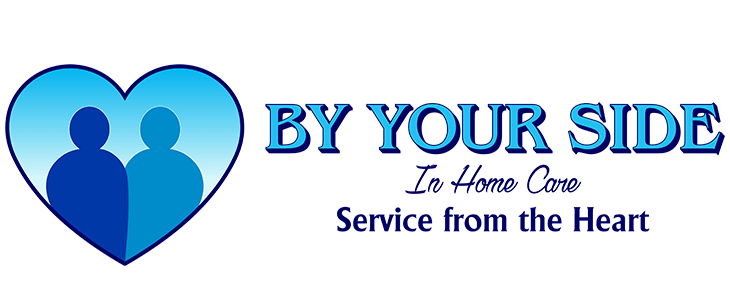The Heartbeat
Our monthly newsletter
October/November 2014
Veterans Day provides a wonderful opportunity to learn more about your loved one’s past. Get ideas from our article about honoring those who served.
Honoring the veterans in your life
On Veterans Day we traditionally honor those who have served. Your relative may be a veteran. Or he or she may have been close to veterans who are now gone.
This year, consider paying tribute by renting the movie “Honor Flight.” Watch the movie together. It’s about a town that decided to honor its aging WWII vets. The town paid for them all to visit the WWII memorial in Washington, DC. It is a powerful and touching movie. It may give you insights about your loved one’s past.
Perhaps it will also inspire your family member to talk about his or her history. Veterans are often quite silent about their experiences. This is especially true of those who were in combat.
But veterans’ memories are precious history. And they are worthy of national commemoration! Check out the Veterans History Project with your relative. It’s a part of the Library of Congress. The project collects veterans’ personal stories and makes them available online so anyone can partake.
The Veterans History Project invites every war veteran to contribute his or her memories. Civilians who were actively involved in a war effort are also welcome to participate. Your relative may even want to contribute in the memory of a veteran who has since passed away.
The Veterans History Project collects war history information in the form of
- audio- and video-taped interviews
- written documents (memoirs, letters, postcards, and diaries)
- visual materials (photographs and drawings)
If you would like to help a vet contribute his or her memories, check the project’s website for guidance. This opportunity may motivate your family member to speak of life experiences you have never heard before. These can be tender and very intimate conversations to share. It’s a wonderful way to acknowledge the veteran in your life this November.
Return to top
Medicare rules about physical therapy
You may have heard that Medicare stops paying for physical therapy unless the patient is making progress. The thinking used to be that if a patient had “plateaued,” more therapy was not productive.
Helping someone stay at his or her current level of ability, however, is a worthy goal in itself. For instance, your relative may be unsteady when getting up from a chair. He or she may never get much steadier. But ongoing physical therapy can help your relative stay at his or her personal best. Without it, your loved one may have a greater likelihood of falling. And each fall opens the possibility of surgery. Or the inability to live without extra help.
It is important that patients not get worse! In that light, Medicare will now pay for ongoing physical therapy. But it must be shown that the treatment will improve, maintain, or prevent decline in your loved one’s condition.
Your relative may qualify for “maintenance” therapy if he or she
- is under a doctor’s care, and the doctor has written orders for therapy. Discuss the goals of treatment with the doctor. Is it improvement? Maintenance? Ensure that the doctor regularly updates the plan and goals. And have the doctor note how many sessions are recommended and how often.
- needs services that Medicare finds “medically reasonable and necessary.” The doctor’s orders must align with generally accepted treatment for your loved one’s illness or condition.
- requires a skilled therapist. That is, an untrained individual would not be able to intuitively do the job. For instance, getting in and out of a car is more complex and requires more skilled assistance than helping someone walk down the hall.
If you think your love one needs physical therapy, a geriatric care manager can help you advocate for more treatments.
Return to top
Unwanted odors
Some elders worry that they have an offensive odor (or their house does) and they don’t know it. As it turns out, starting at about age 40, a natural fragrant compound is found in the sweat and skin that increases over time. It’s not a bad smell, per se. Just one that is uniquely identifiable as pertaining to older adults.
Older adults do lose the sense of thirst, so they are often dehydrated. This leads to stronger odors of the mouth, of the urine, of the skin.
Changing clothing completely, including underwear and socks, may be more difficult, especially if your loved one has arthritis. It’s not uncommon, understandably, to respond to the pain by taking shortcuts with personal hygiene. Moreover, as we age, we typically lose our own sense of smell and vision, making it harder to notice if something needs to be washed.
Here are things you can do to help your loved one address concerns about odors:
- Open windows to let in air and sunshine.
- Do a deep cleaning. With arthritis and mobility challenges, anything more than light tidying up can be difficult, even painful. Mold, mildew, and dander (sloughed-off skin) all generate odors. Pay attention to bedding, bathrooms (damp corners and towels), kitchens (especially the floor and refrigerator), and the upholstery and carpet in areas where your loved one sits most of the time.
- Help with laundry. Throw in a load when you visit or take laundry home to “relieve mom” of the work.
- Make bathing easier. Many elders limit bathing because they have fears about falling or dislike being cold. Provide grab bars, a small heater, and a shower bench for sitting on.
- Promote fluid intake. Suggest your relative set out a quart of water each day in the morning and try to drink it all by nightfall.
Return to top

